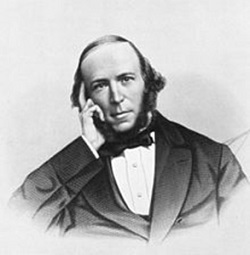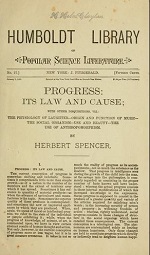|
TRANSLATE THIS ARTICLE
Integral World: Exploring Theories of Everything
An independent forum for a critical discussion of the integral philosophy of Ken Wilber
 David Christopher Lane, Ph.D.
Professor of Philosophy, Mt. San Antonio College Lecturer in Religious Studies, California State University, Long Beach Author of Exposing Cults: When the Skeptical Mind Confronts the Mystical (New York and London: Garland Publishers, 1994) and The Radhasoami Tradition: A Critical History of Guru Succession (New York and London: Garland Publishers, 1992). David Christopher Lane, Ph.D.
Professor of Philosophy, Mt. San Antonio College Lecturer in Religious Studies, California State University, Long Beach Author of Exposing Cults: When the Skeptical Mind Confronts the Mystical (New York and London: Garland Publishers, 1994) and The Radhasoami Tradition: A Critical History of Guru Succession (New York and London: Garland Publishers, 1992).If there's a singular topic Integral students need to be educated on it is evolutionary theory, given their frequent but uninformed use of the term "evolution". These short biographical chapters about evolutionary theorists have been written by different philosophy students of professor David Christopher Lane. (FV)
THE EVOLUTIONARY SCIENTISTS
Glimpses into the Life and Work of Great Thinkers in Evolutionary Biology
Coyne|
Crick|
Darwin|
Dawkins|
Diamond|
Dobzhansky|
Eldridge|
Gould|
Haldane|
Hamilton |
Lamarck|
Lovelock|
Mayr|
Mendel|
Monod|
Spencer|
Trivers |
Wallace |
Weismann |
Williams |
E.O. Wilson
Herbert SpencerAlice Ailisi Herbert Spencer Herbert Spencer (April 27, 1820 - December 8, 1903), a social evolutionist and a controversial British thinker of the 19th-century, was an early pioneer of the theory of evolution. He is best known for his doctrine of Social Darwinism, and he first coined the term “survival of the fittest” after he read Charles Darwin's theories of biological evolution and natural selection. Social Darwinism was popular in the late 19th and early 20th centuries but later lost its popularity due to controversial interpretations by many respected scholars from various fields. Because of the progression of knowledge in society, cultural phenomena, and biology, the basic tenets of Social Darwinism were eviscerated. Herbert Spencer was born in an academic family in Derby, Derbyshire, England. He received his early education from his father William George Spencer, who was a schoolmaster. According to author Jane A. Stewart in her article “Centennials: Herbert Spencer” published in The Journal of Education in 1920: “Spencer was given absolute freedom to follow his own bent in the pursuit of knowledge. He played out-of-doors constantly, studying nature first-hand in garden, field and woods. Noticing his son's repugnance to book-learning, the father did not urge him early to learn to read and write, but encouraged his fondness for natural history; ...Drawing from nature was his delight; so were making maps from memory, making chemical and mechanical experiments, and listening to the wise discussions of his father's friends and of his clergyman uncle, Rev. Thomas Spencer.” When Spencer turned thirteen, he was sent to live with his uncle Reverend Thomas Spencer who completed Spencer's formal education in mathematics, physics, and basic Latin. Although Spencer turned down the offer from his uncle to study at Cambridge, he was self-taught and achieved a higher education which was mainly in the natural sciences based on reading and conducting academic conversations with others. After a short period of being a school teacher, Spencer worked for a company as a railroad civil engineer from 1837 to 1841. Spencer was a nonconformist, which resulted from his parents' dissenting religious convictions. In his early twenties, Spencer started to contribute to the major newspapers of the day and expressed his political views. In 1842, one of his major productions in general literature, “The Proper Sphere of Government” was published by The Nonconformist, and later he became a subeditor of The Economist in 1848. Spencer received a large inheritance from his uncle in 1853, and he resigned from The Economist to devote himself entirely to writing. Spencer's major writing included Social Statics (1853), The Principles of Psychology (1855), First Principles (1862), The Principles of Biology, 2 vol. (1864–67), The Principles of Sociology, 3 vol. (1876–96), The Principles of Ethics, 2 vol. (1892–93), and The Nature and Reality of Religion: A Controversy Between Frederic Harrison and Herbert Spencer (1885). Spencer was nominated for the Nobel Prize in Literature in 1902 shortly before he died. According to their website, there were forty-nine proposals nominating Herbert Spencer submitted by The Nobel Prize Committee of the Society of Authors. Spencer died in 1903 in Brighton, England at the age of 83. 
Herbert Spencer articulated his perspective of evolution before Charles Darwin's On The Origin of Species (1859) in his article “Progress: Its Law and Cause” in 1857 published in Chapman's Westminster Review; however, as expressed by Dr. Paul Halsall from Fordham University, Spencer's ideas received a major boost from Darwin's theories, and the general application of ideas such as "adaptation" and "survival of the fittest.” Spencer attempted to apply Charles Darwin's theory of biological evolution to society, and this social thought is known as "Social Darwinism." Spencer was defined as a Social Darwinist in the 1930s, nearly twenty years after his death. By definition from the database Britannica Academic: “Social Darwinism, the theory that human groups and races are subject to the same laws of natural selection as Charles Darwin perceived in plants and animals in nature. [It held]…the weak were diminished and their cultures delimited while the strong grew in power and cultural influence over the weak. [And]…the life of humans in society was a struggle for existence ruled by “survival of the fittest,” … Spencer claimed, “This survival of the fittest, which I have here sought to express in mechanical terms, is that which Mr. Darwin has called 'natural selection,' or the preservation of favoured races in the struggle for life” in his Principles of Biology in 1864. Spencer's social evolutionism is many things to many scholars, and according to University of Tennessee Corresponding Author Robert G. Perrin in his article, “Herbert Spencer's Four Theories of Social Evolution” published in the American Journal of Sociology in 1976: “Few of their interpretations are complete or free from serious inaccuracies; taken together, they are often mutually contradictory, [indicating] ...Spencer had not one, but four discrete theories of what he, himself, frequently termed "social evolution" (and sometimes "social development"). Not all, but perhaps a good share of the current exegetic diversity in sociology's empirical history stems from this unrecognized fact.”
However, many of the implications of the term Social Darwinism were largely influenced by historian Richard Hofstadter's view in his book Social Darwinism in American Thought in 1860-1915 (1944). There have been scholars who argued that Hofstadter's reflection caused the term Social Darwinism to be tightly associated with laissez-faire ideology and invoked as a synonym for eugenics. Moreover, according to Professor Richard Weikart from California State University, Stanislaus in his article “Darwinism and Death: Devaluing Human Life in Germany” 1859-1920, Social Darwinism served as a background to the discussions of Hitler's ideology and the roots of German imperialism, and Hitler scholars agreed on this point. Aside from the controversial orientation of Social Darwinism, Herbert Spencer's contribution to various fields of subjects must not be overlooked. According to an article published by the International Society of Political Psychology in 1981 by psychologist Jack Jones from New York: “Darwinism and Social Darwinism were aspects of the general abandonment of the Christian religion and its sacral emotionality among educated people in the 19th century. They turned instead to 'material' and 'scientific' reinterpretations of reality as matter, force, mechanism, automatism, determinism, chance, adaptation, competition, extinction, mortality. “ Religion was a dominant force in the Victorian period, but Spencer was an unconventional thinker. He abandoned the Christian faith, and advocated for rational thinking and scientific method of examining society and many other disciplines. Spencer was complex intellectual figure and this is reflected in the distinctive importance he gave to human progress. Further Reading1. The Right to Ignore the State, HardPress Publishing (January 10, 2012) 2. Illustrations of Universal Progress, Adamant Media Corporation (November 30, 2005) 3. The Data of Ethics, Hesperides Press (November 4, 2008) MSAC Philosophy Group
The theory of evolution has a long history. However, it was not until Charles Darwin and Alfred Russel Wallace discovered that the wide variety of species we presently see were largely the result of natural selection did evolutionary studies have a solid, scientific basis. In the past one hundred and sixty years, a number of eminent biologists have contributed to our understanding of how complex life forms emerged from simpler, more rudimentary ones.
Comment Form is loading comments...
|